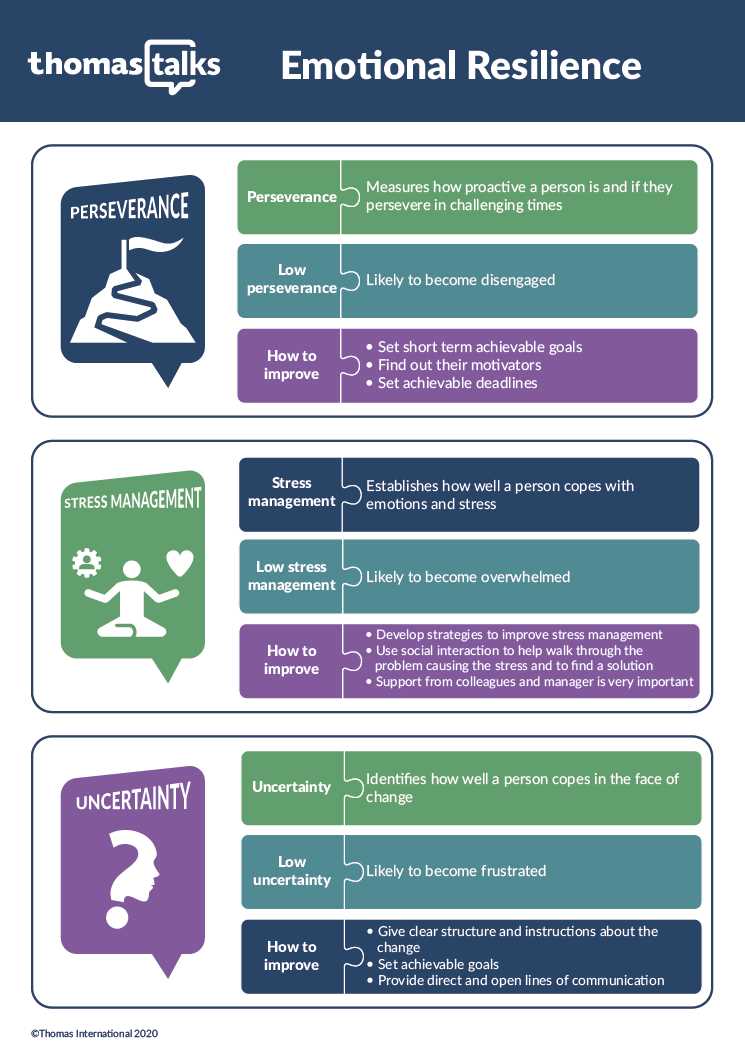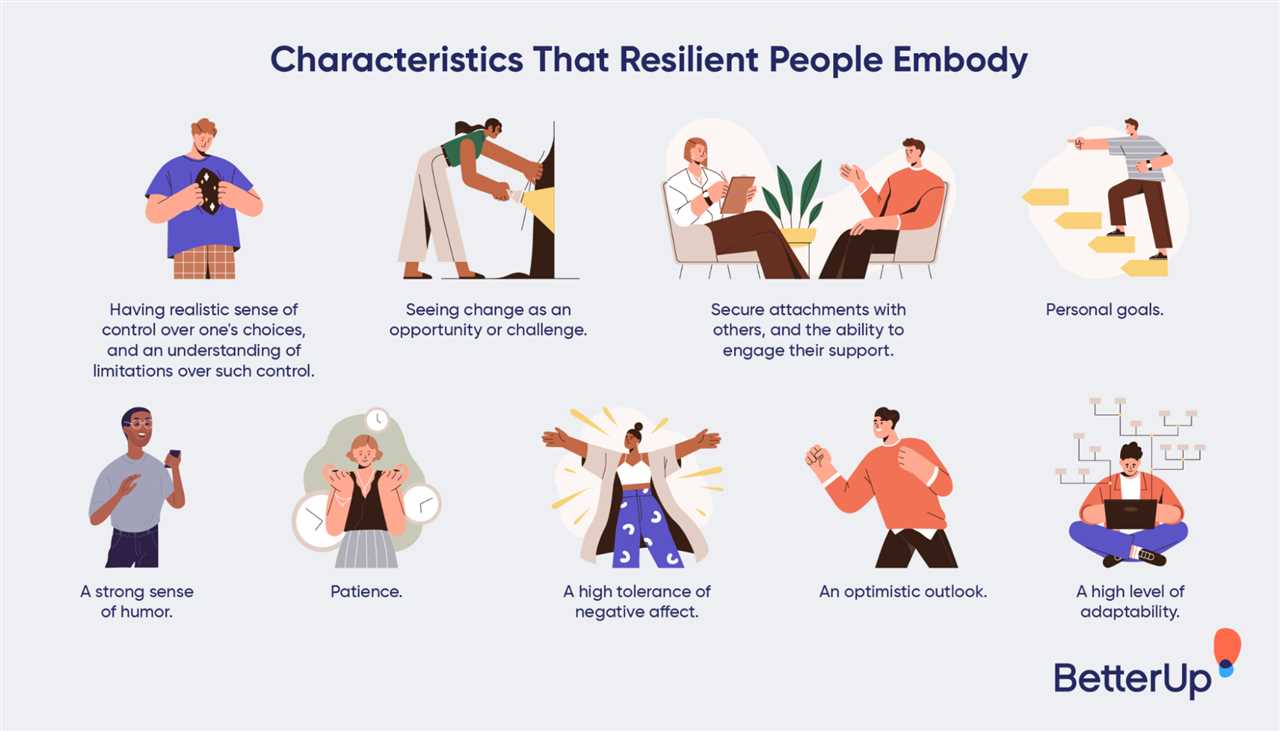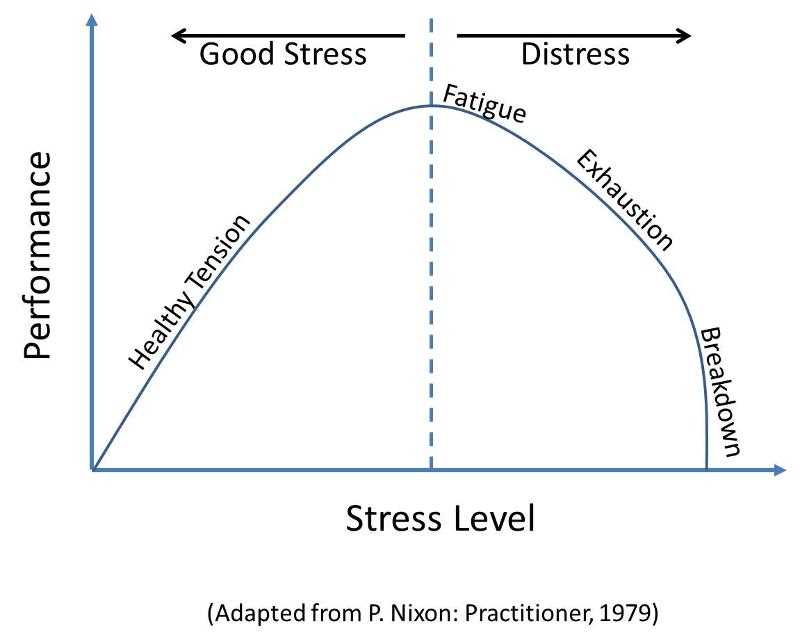
Stress is an inevitable part of life. Whether it is caused by work, relationships, or personal circumstances, we all experience emotional stress at some point. However, it is how we manage and develop our emotional resilience that determines our ability to cope with and overcome these challenges.
Emotional resilience refers to our ability to adapt and bounce back from stressful situations. It involves the capacity to recognize and understand our emotions, as well as the ability to regulate them effectively. By developing emotional resilience, we can better manage stress and maintain a sense of well-being.
One way to develop emotional resilience is to watch our thoughts and beliefs. Negative self-talk and limiting beliefs can contribute to increased stress and emotional turmoil. By challenging and reframing these thoughts, we can cultivate a more positive and resilient mindset.
Another important aspect of managing stress and developing emotional resilience is practicing self-care. Engaging in activities that bring us joy and relaxation, such as exercise, meditation, or spending time with loved ones, can help reduce stress and increase emotional well-being. It is crucial to prioritize self-care and make it a regular part of our routine.
Understanding Emotional Resilience
Emotional resilience is the ability to develop and maintain a positive mindset and effectively manage stress and challenges. It involves being aware of and in control of one’s emotions, as well as having the ability to bounce back from difficult situations. Developing emotional resilience is crucial in today’s fast-paced and demanding world, where stress and pressure are common.
One way to develop emotional resilience is to watch for negative thought patterns and replace them with more positive and realistic ones. This can help shift your mindset and enable you to better cope with stress. It’s important to recognize that you have control over your thoughts and can choose how you interpret and react to events.
Another aspect of emotional resilience is learning to manage stress effectively. This involves identifying your stressors and finding healthy ways to cope with them. This could include practicing relaxation techniques, such as deep breathing or meditation, engaging in physical activity, or seeking support from friends and family.
Resilience also involves building a strong support network. Having people you can turn to for emotional support and guidance can greatly enhance your ability to navigate challenging situations. It’s important to surround yourself with positive and supportive individuals who can help you maintain a healthy perspective and offer advice when needed.
In conclusion, understanding emotional resilience is essential for managing stress and maintaining a positive mindset. By developing this resilience, you can effectively navigate the ups and downs of life and bounce back from adversity. It’s a skill that can be learned and strengthened over time, and it can greatly contribute to your overall well-being and happiness.
The Importance of Emotional Resilience
Emotional resilience is a crucial skill that can greatly impact our ability to manage stress and overcome challenges. In today’s fast-paced and demanding world, it is essential to develop emotional resilience to maintain our mental well-being and achieve success.
Emotional resilience refers to the ability to adapt and bounce back from difficult situations, setbacks, and stressors. It involves being aware of our emotions, understanding them, and effectively managing them. When we have emotional resilience, we are better equipped to handle the ups and downs of life, maintain a positive outlook, and make healthier decisions.
One of the key benefits of emotional resilience is its ability to help us effectively manage stress. Stress is a common experience in our lives, and it can have a significant impact on our mental and physical health. By developing emotional resilience, we can better cope with stress and prevent it from overwhelming us.
Emotional resilience also plays a crucial role in our relationships. When we are emotionally resilient, we are better able to communicate our needs and emotions to others, understand their perspectives, and resolve conflicts effectively. This can lead to healthier and more fulfilling relationships both personally and professionally.
Furthermore, emotional resilience allows us to watch our emotions and reactions without being consumed by them. It enables us to step back, assess the situation objectively, and make rational decisions. This ability is particularly valuable in high-pressure situations or when facing difficult choices.
Overall, developing emotional resilience is essential for our well-being and success. It helps us manage stress, maintain positive relationships, and make better decisions. By investing in our emotional resilience, we can lead healthier, happier, and more fulfilling lives.
Factors Affecting Emotional Resilience
Emotional resilience is the ability to watch and manage our emotions effectively, especially during challenging situations. It is a skill that can be developed and strengthened over time. However, there are several factors that can influence a person’s level of emotional resilience.
One of the key factors is the individual’s upbringing and environment. Growing up in a supportive and nurturing environment can help a person develop emotional resilience from an early age. On the other hand, a lack of support or exposure to high levels of stress can hinder the development of resilience.
Another factor is the individual’s mindset and attitude. People who have a positive outlook and believe in their ability to overcome challenges are more likely to be emotionally resilient. On the other hand, those with a negative mindset and a tendency to dwell on negative emotions may struggle to develop resilience.
Stress management skills also play a crucial role in emotional resilience. Being able to effectively manage stress and cope with adversity can help individuals bounce back from difficult situations. This includes practicing self-care, engaging in relaxation techniques, and seeking support from others when needed.
Additionally, social support is a significant factor in emotional resilience. Having a strong support network of friends, family, or mentors can provide individuals with the encouragement and guidance they need during challenging times. These relationships can help individuals build resilience by providing a safe space to express emotions and receive support.
Lastly, personal experiences and past traumas can impact emotional resilience. Individuals who have faced and overcome adversity in the past may be better equipped to handle future challenges. However, those who have experienced significant trauma may require additional support and resources to develop emotional resilience.
In conclusion, emotional resilience is influenced by various factors including upbringing, mindset, stress management skills, social support, and personal experiences. By understanding these factors and actively working on developing resilience, individuals can better navigate the ups and downs of life and maintain their emotional well-being.
Building Emotional Resilience

Emotional resilience is a crucial skill to develop in order to effectively manage stress and navigate life’s challenges. It involves the ability to watch your emotions, understand them, and respond to them in a healthy and adaptive way.
Here are some strategies to help build emotional resilience:
- Self-awareness: Take the time to reflect on your emotions and understand what triggers them. By becoming more aware of your emotions, you can better manage them.
- Self-care: Make sure to prioritize self-care activities that help recharge and rejuvenate you. This can include exercise, meditation, spending time in nature, or engaging in hobbies you enjoy.
- Positive thinking: Cultivate a positive mindset by focusing on the good things in your life and practicing gratitude. This can help shift your perspective and build resilience in the face of challenges.
- Seek support: Reach out to trusted friends, family, or professionals when you need support. Having a strong support system can provide a sense of comfort and help you navigate difficult emotions.
- Problem-solving: Develop effective problem-solving skills to address the root causes of your stress. Break down problems into manageable steps and brainstorm potential solutions.
- Flexibility: Embrace change and adaptability. Life is full of unexpected challenges, and being able to adjust and find new solutions is key to building emotional resilience.
- Practice self-compassion: Treat yourself with kindness and understanding. Remember that it’s normal to experience a range of emotions, and be gentle with yourself during difficult times.
By incorporating these strategies into your daily life, you can develop a strong foundation of emotional resilience. Remember that building resilience takes time and practice, but it is a valuable skill that can help you navigate stress and thrive in the face of adversity.
Identifying and Managing Stressors

In order to effectively manage stress and develop emotional resilience, it is important to identify and understand the stressors in your life. Stressors can be external factors, such as work deadlines, financial pressures, or relationship conflicts, or internal factors, such as negative self-talk or perfectionism.
One way to identify stressors is to keep a stress journal. Take some time each day to write down the events or situations that caused you stress and how you felt in response to them. This can help you identify patterns and triggers for your stress. It can also help you become more aware of how you are reacting to stress and develop strategies to manage it.
Once you have identified your stressors, it is important to develop strategies to manage them. This can include practicing stress-reducing techniques, such as deep breathing exercises, meditation, or physical activity. It can also involve making changes in your environment or lifestyle, such as setting boundaries, prioritizing self-care, or seeking support from friends or professionals.
It is important to remember that managing stress is a lifelong process. Developing emotional resilience takes time and practice. It is important to be patient with yourself and watch for signs of stress or burnout. If you find that your stress levels are becoming overwhelming or impacting your daily life, it may be helpful to seek professional help.
In conclusion, identifying and managing stressors is a crucial step in developing emotional resilience and managing stress. By becoming aware of the factors that cause you stress and implementing strategies to manage them, you can improve your overall well-being and build your resilience to future stressors.
Developing Healthy Coping Mechanisms

Developing healthy coping mechanisms is essential for building emotional resilience and effectively managing stress. When faced with challenging situations or overwhelming emotions, having healthy coping mechanisms can help individuals navigate through difficult times and maintain their emotional well-being.
One effective coping mechanism is to develop self-awareness and watch for signs of stress. By being aware of one’s emotional state and recognizing the early signs of stress, individuals can take proactive steps to manage their stress levels and prevent it from escalating.
Another important coping mechanism is to develop a support system. Having a network of trusted friends, family members, or professionals can provide a safe space for individuals to express their emotions and seek guidance. This support system can offer valuable insights, advice, and encouragement during challenging times.
Engaging in activities that promote emotional well-being is also crucial for developing healthy coping mechanisms. This can include practicing mindfulness or meditation, engaging in regular physical exercise, or pursuing hobbies and interests that bring joy and relaxation. These activities can help individuals reduce stress, increase self-awareness, and cultivate a sense of inner calm.
Lastly, it is important to develop healthy ways of managing and expressing emotions. This can involve journaling, talking to a therapist, or participating in support groups. By expressing and processing emotions in a healthy and constructive manner, individuals can prevent emotions from building up and causing excessive stress.
Overall, developing healthy coping mechanisms is a vital component of building emotional resilience and effectively managing stress. By watching for signs of stress, developing a support system, engaging in activities that promote emotional well-being, and managing emotions in a healthy manner, individuals can enhance their resilience and lead a more balanced and fulfilling life.
Building a Supportive Network
One of the most effective ways to develop emotional resilience and manage stress is by building a supportive network. Having a strong support system in place can help you navigate through difficult times and provide you with the necessary resources and encouragement to overcome challenges.
When building a supportive network, it’s important to carefully choose the people you surround yourself with. Look for individuals who are positive, understanding, and empathetic. These are the people who will watch out for you, offer a listening ear, and provide valuable advice and support when needed.
It’s also crucial to be a supportive friend in return. Building a network is a two-way street, and it’s important to offer your support and help to others as well. By being there for others, you not only strengthen your relationships but also develop a sense of purpose and fulfillment.
In addition to friends and family, consider joining support groups or seeking out professional help. Support groups provide a safe space to share your experiences and learn from others who may be going through similar challenges. Professional help, such as therapy or counseling, can provide you with additional tools and strategies to manage stress and build emotional resilience.
Remember, building a supportive network takes time and effort. It’s important to nurture your relationships and regularly check in with the people in your network. By investing in these relationships, you’ll have a strong foundation of support to rely on during both good times and bad.
So take the time to build a supportive network, and watch as your emotional resilience and ability to manage stress improve.

I am Patrina de Silva, a psychologist and mental health blogger in Sri Lanka. After obtaining psychology degrees from the University of Colombo and Monash University, I returned home to work as a counselor while also starting the popular blog “Pressy but Happy” to provide advice on psychological issues. Over the past decade, my empathetic articles have made my blog a leading mental health resource in the country. In addition to writing, I maintain a private therapy practice, frequently volunteer counseling time, and conduct seminars, driven by my passion for destigmatizing mental illness and educating the public on the mind-body connection. I strive to be an influential voice in my field through my compassionate approach.
